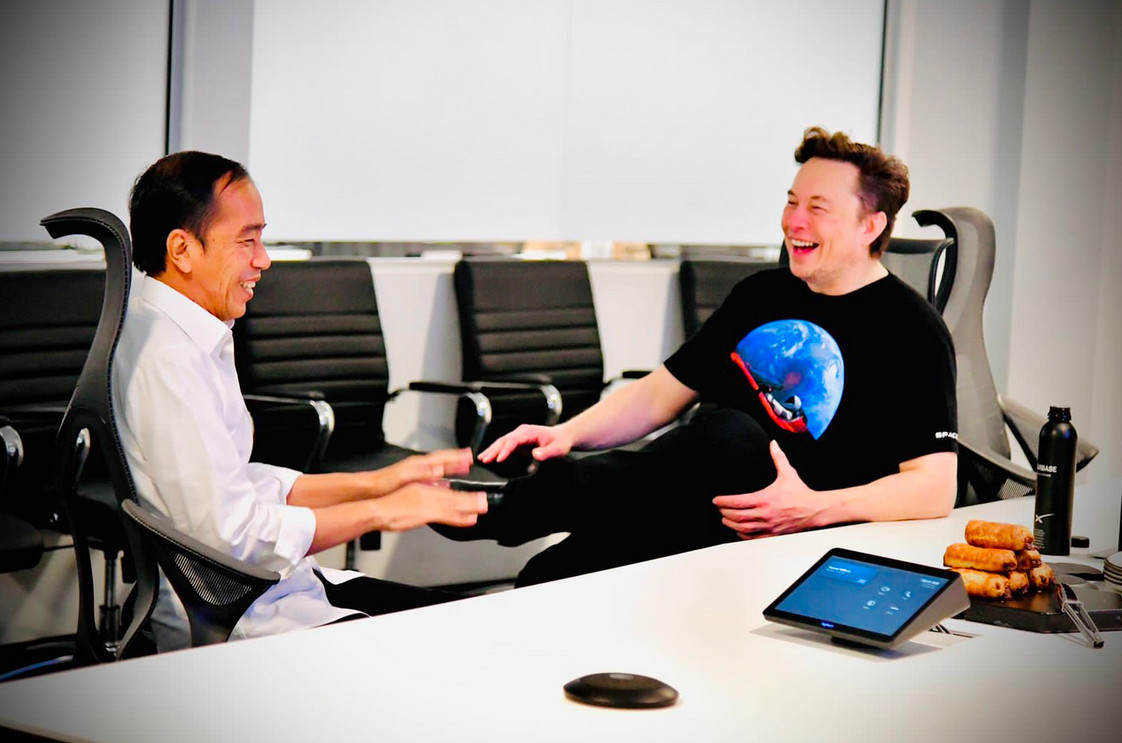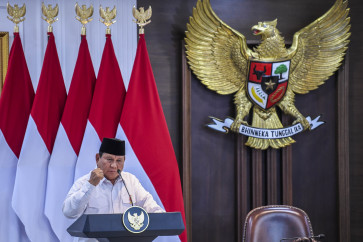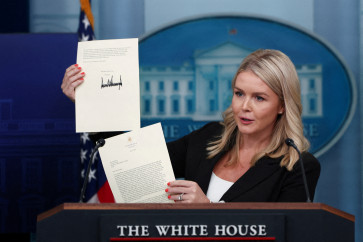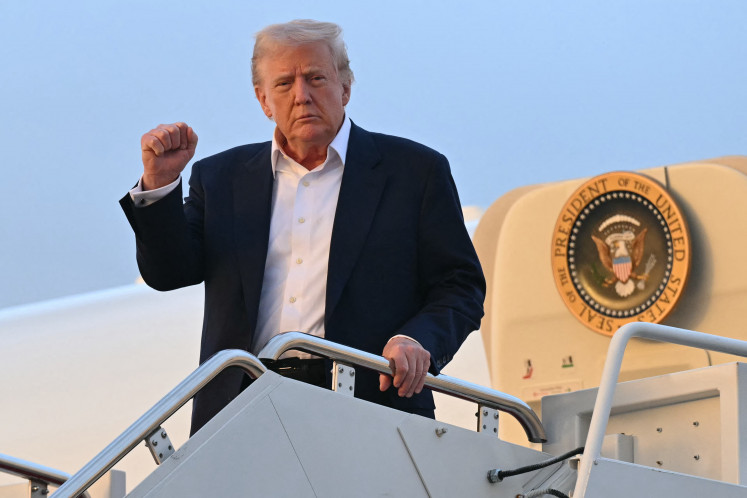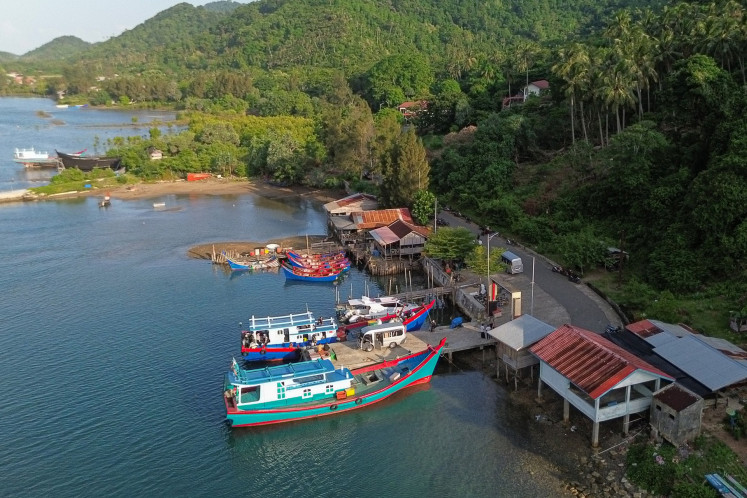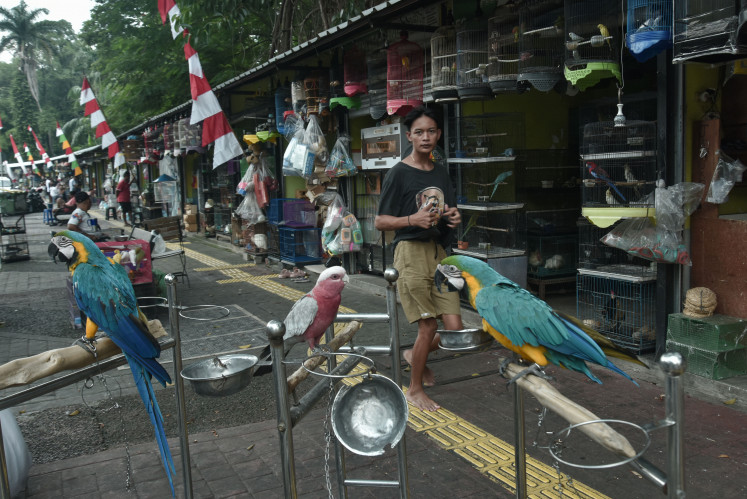Popular Reads
Top Results
Can't find what you're looking for?
View all search resultsPopular Reads
Top Results
Can't find what you're looking for?
View all search resultsConcerns raised over $5b Tesla deal with Chinese firm in Sulawesi
Despite the government's hopes to gain "economic benefits" from Tesla's multi-billion nickel investment in Sulawesi, a constitutional economist has pointed out that the 'unconstitutional' deal involves two Chinese firms reselling Indonesia’s natural resources.
Change text size
Gift Premium Articles
to Anyone
C
oncerns have arisen over American automotive and energy company Tesla’s plan to purchase Indonesian nickel on reports that the firm is ready to invest Rp 74.5 trillion (US$5 billion) in two Chinese companies in Morowali, Central Sulawesi.
During an annual shareholders’ meeting in September 2020, Tesla declared its commitment to good environmental and social business practices, but critics say the company’s move to buy raw materials from foreign firms in Indonesia runs counter to these promises.
According to the Mining Advocacy Network (Jatam), the Texas-based carmaker intends to purchase nickel from China’s Zhejiang Huayou Cobalt and CNGR Advanced Material, both of which operate in Morowali.
Huayou Cobalt, headquartered in Zhejiang, China, is a major producer of raw materials for lithium batteries and cobalt products.
CNGR Advanced Materials, based in Guizhou, China, is a subsidiary of the Hunan CNGR Holding Group that produces and supplies new materials for lithium batteries.
Jatam coordinator Melky Nahar said in a statement on Tuesday that Huayou Cobalt had signed a framework cooperation agreement with PT Vale Indonesia in April to develop a high-pressure acid leaching (HPAL) plant in Pomala, Kolaka, North Sulawesi.
According to Melky, CNGR had invested in two nickel matte projects with a cumulative production capacity of 60,000 tons per year. The company had also inked a deal with nickel giant Tsingshan Holding Group to build a 40,000-ton production plant on the island.
“CNGR has also signed an agreement with Singapore’s Riqueza International [Group] to invest jointly in three projects in the Weda Bay industrial area to produce nickel matte in North Maluku,” he added.
The company was also investing in three additional nickel matte projects in Indonesia, aiming to increase annual production by 120,000 tons to meet increasing demand in the electric vehicle battery (EVB) industry.
Melky believed that Tesla’s involvement with Huayou Cobalt and CNGR’s Indonesian operations would contribute indirectly to wider environmental destruction in Morowali and Weda Bay.
“Tsingshan group and Bintang Delapan Group are the founders of PT Indonesia Morowali Industrial Park [IMIP], whose activities triggered flash floods that caused [the deaths] of two people and the destruction of hundreds of private and public facilities,” he said.
Melky also said the process of dismantling batteries to recycle nickel had actually taken a high toll on the environment and was not a form of low-carbon and environmentally friendly development as had been claimed.
“Because of the higher demand for nickel from the global market, including to meet EVB demand, the destruction of people’s living spaces as well as the land and marine environment in Indonesia” would expand more rapidly, he said.
Melky added that the nickel extraction industry had caused many people to lose access to food and clean water. It had also caused the escalation and expansion of land disputes and conflicts due to land grabbing and repressive security measures against people who defended their living space.
Pros and cons
Investment and Mining Coordination Deputy Septian Hario Seto from the Office of the Coordinating Maritime Affairs and Investment Minister provided a general response when asked what economic benefits Tesla would bring to the country if it invested in raw nickel production instead of building an EVB plant.
“At least the firms [are based] in Indonesia, the workers are Indonesian, the taxes are also paid in Indonesia despite the firms being headquartered in China,” said Septian as quoted by Kompas.
“Now, that’s a good thing,” Coordinating Maritime Affairs and Investment Minister Luhut Binsar Pandjaitan said earlier this week. “Tesla has signed a contract for five years, so [the investment] has started entering the country. The first stage has entered the country.”
He added that the government saw other possibilities for Tesla to provide capital for a lithium battery plant in the country and that it had suggested earlier that Tesla establish a production base in Batang Industrial Park, Central Java.
"We are still negotiating this with Tesla, because [the company’s boss Elon Musk] is still busy in his country, with Twitter problems and so on," Luhut said, referring to the billionaire's stalled takeover deal of the social networking platform.
One expert claims Tesla’s move in Morowali is unconstitutional and has left the government with a weakened bargaining position.
Economist Defiyan Cori claimed Tesla should have made an agreement directly with the government because the natural resources belonged to the country.
"The signing of the nickel purchasing contract between Tesla and the two Chinese suppliers clearly undermines Indonesia's position as the owner of the mineral resources, or raw materials. In fact, the two companies have built factories in Indonesia, which should have a clause prohibiting reselling the commodities to other parties," said Defiyan.
He said the government was at an economic disadvantage because of the difference between the selling price and the production cost of nickel. The potential for value-added production from domestic sales would be greater than selling the commodity to Tesla.
Defiyan also stressed that closer attention was needed on the cooperation contract between the government and the two Chinese companies for building a nickel processing plant.
“We should see whether their position indicates a default action, or if there is an element of manipulation [or] corruption and collusion with the official signing the contract,” he added.
“Although the two companies pay taxes to the government, the sale of nickel [as a] raw material by Chinese companies is not constitutionally justified."

